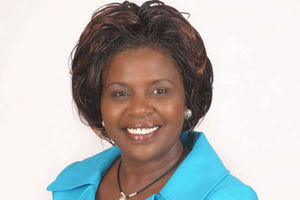
People stand in the rubble as they inspect a house that was hit by an artillery shell in the Azhari District in the south of Khartoum, Sudan on June 6, 2023. PHOTO | AFP
|News
Prime
Hope as Sudan’s peers move to secure peace deal
As the Intergovernmental Authority on Development (Igad) leaders gather for a summit on Sudan peace in Djibouti, African countries have launched a process to consolidate multiple peace bids, which they admit have contributed to failed efforts since the war erupted on April 15.
The new move involves the Expanded Mechanism on the Crisis in Sudan, an African Union-led platform that includes Sudan’s neighbours in Africa and the Gulf as well as the European Union, League of Arab States, the US, Russia, China, France and Norway. It also includes Ghana, Mozambique and Gabon, the three African countries currently sitting on the UN Security Council.
On December 4, the Mechanism agreed that warring parties in Sudan, Rapid Support Forces (RSF) and the Sudan Armed Forces (Saf) must stop the fight but said actual peace solution can only come from everyone participating at the table.
“Only an inclusive, representative, Sudanese-owned and Sudanese-led dialogue among all Sudanese stakeholders…can lead to a peaceful and sustainable solution to the crisis,” the Mechanism said in a statement after the meeting. They listed the warring a parties, other armed movements, political parties, civil society organisations, women and youth groups, resistance committees, labour unions and professional associations, traditional leaders, and academics as crucial for the long-term peace.
Musalia Mudavadi, Kenya’s prime cabinet secretary and Foreign Affairs cabinet secretary, did admit that one of the peace bids that had been seen as stronger and preferred by belligerents had weakened, leading to renewed violence.
“The Jeddah Peace Process seems to be stalling, and African nations will have to play a more pivotal role, with the support of other countries,” Mudavadi said at a discussion at Chatham House, UK on Thursday, referring to a peace bid fronted initially by the US and Saudi Arabia, but which now includes the African Union and Igad.
He was speaking about ‘Kenya's Foreign Policy Imperatives’ but focused on the Horn of Africa for which he said it must reap from the peace.
“We are seeking a peace dividend with our diplomacy of conflict resolution so as to strategically position ours as a peace and investment ready Igad region that stretches over an area of 5.2 million Sq km,” he said.
Igad itself had one of those failed approaches, and so have other countries included in the Mechanism, including Turkey and Egypt. Initially, the bloc for the Horn of Africa started a quartet; Kenya, South Sudan, Ethiopia and Djibouti. Sudan’s military leader Abdel Fattah al-Burhan rejected Kenya’s role, stalling any meetings.
“We cannot be innocent bystanders. We really need to get together as a region. It is our desire that we unify all these processes…and have one unified approach,” Mudavadi said, indicating Igad was meeting to correct the false start.
Igad has publicly supported the Jeddah Process, however, having been drafted as a participant. But the Mechanism says neutrality will be key to end the war, by first building confidence from warring parties. It said countries should “refrain from providing military, political or financial support to the belligerents in Sudan, and to unite under the AU Commission.
It also said the mechanism should gather regularly under the African Union Commission, “in order to avoid fragmentation and proliferation of all international and regional initiatives on Sudan.”
One of the countries Sudan recently accused of arming the RSF is the United Arab Emirates. It is a member of the Mechanism and denies the charge.
Burhan, though, has since engaged a shuttle diplomacy, mending fences with Kenya and Ethiopia, two countries he initially accused of siding with the RSF. That has led to a Summit by Igad which is likely to dissolve the quartet and assign mediation roles directly through the organs of the bloc to support Jeddah Process, according to two diplomats familiar with the plan.
The summit of heads of state and government came after strong lobbying by Sudanese junta leader Gen Abdel Fattah al-Burhan who has also drafted in various other political and armed movements to weaken the role of RSF as a sole belligerent while depicting the Saf as the genuine government of Sudan.
The Summit is also expected to discuss the humanitarian situation in Sudan, where some five million people have been displaced and more than 7,500 killed since the violence broke out in April.
But the Mechanism is pushing for any peace bids to also include justice for victims of war.
It said on Thursday that “accountability must be part of any response in the search for peace in Sudan, to ensure justice and healing for victims and affected communities.”





